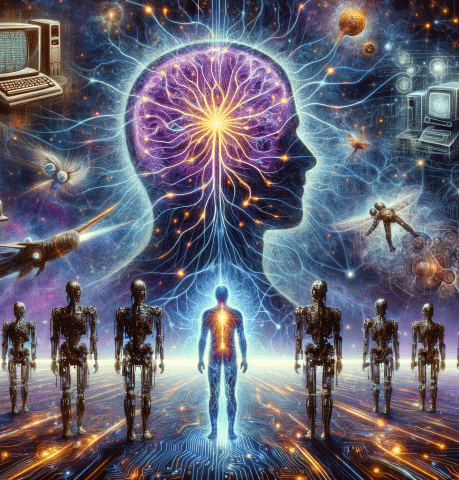Customized Chatbots
2024 is poised to witness a revolution in chatbot technology. Major tech companies like Google and OpenAI are introducing platforms that allow even those without technical expertise to create custom chatbots. These user-friendly tools are democratizing AI, enabling people to design chatbots for various personal and professional uses. The implication is a wave of innovation across sectors, from customer service to personal assistance. However, the success of these tools relies heavily on the accuracy and reliability of the underlying AI models. There are concerns regarding biases and the potential for misinformation, especially in models that have internet browsing capabilities. As these chatbots become more mainstream, companies will face the challenge of ensuring their models are both effective and ethically sound.

Generative AI’s Second Wave: Video
The evolution of generative AI is rapidly advancing into the realm of video. After reshaping the landscape of image generation, the focus is now shifting to creating realistic video content. This leap forward is set to revolutionize the way we consume and create media. The potential applications are vast, ranging from film production to advertising. Recent advancements have seen AI technologies being used in movie production for tasks such as lip-syncing and special effects, as showcased in the de-aged deepfake Harrison Ford in the latest Indiana Jones movie. This trend is drawing attention from major film studios and could redefine the standards of visual storytelling and entertainment.
AI-Generated Election Disinformation
The upcoming year is likely to see an escalation in the use of AI for generating election disinformation. The ease of creating realistic deepfakes and AI-generated content is a growing concern for the integrity of political processes. This technology has been used to create misleading images and videos, impacting public opinion and potentially influencing election outcomes. The challenge lies in distinguishing real content from AI-generated falsities, a task that becomes increasingly difficult as the technology advances. The proliferation of such content calls for urgent development in detection and mitigation strategies, emphasizing the need for public awareness and regulatory measures to safeguard against AI-fueled misinformation.

Robots that Multitask
The field of robotics is undergoing a transformative change, inspired by developments in generative AI. The trend is moving towards creating versatile, multi-tasking robots capable of performing a variety of functions. This shift marks a departure from the traditional approach of designing robots for specific tasks. Instead, robots are being developed to adapt to different tasks, learning and improvising as they go. This flexibility could have far-reaching implications, potentially enabling robots to perform complex combinations of tasks in industrial, domestic, and personal settings. However, a significant challenge in this endeavor is the limited availability of diverse training data for robots, a hurdle that researchers are actively working to overcome.









Recent Comments